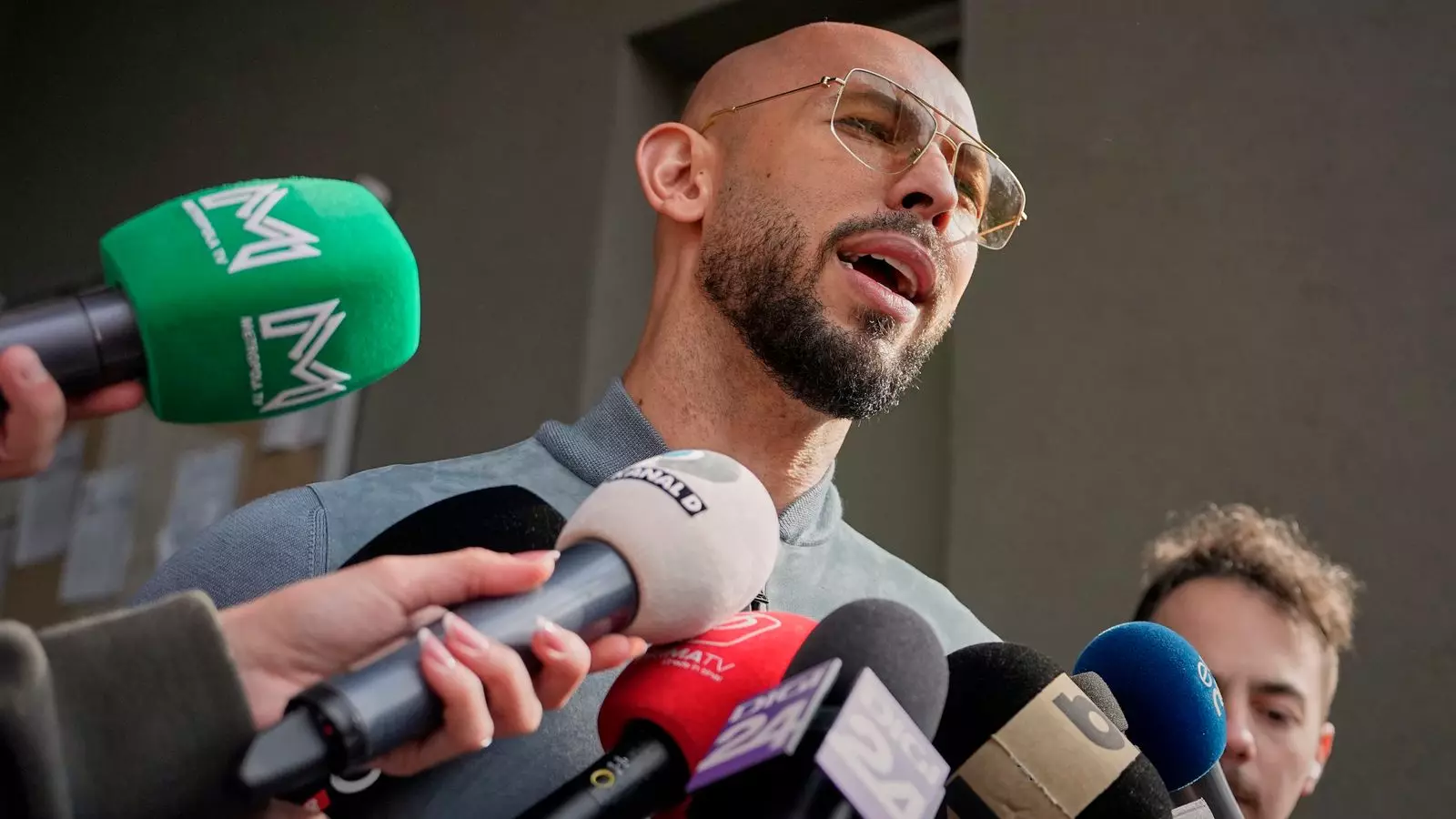In recent years, the detrimental effects of social media influencers on the younger generation have become increasingly palpable. A striking survey conducted by the NASUWT teaching union sheds light on a worrying trend: nearly 59% of educators feel that social media engagement has corrosively impacted students’ behavior, particularly in terms of sexism and misogyny. This revelation is a clarion call for immediate action. It isn’t just the curriculum that needs examination; it’s the very fabric of our social discourse that is being frayed by seemingly innocuous online personalities, many of whom exemplify toxic masculinity.
Imagine a classroom where young boys are explicitly instructed by YouTube videos to shun female authority figures, displaying overt disrespect and disdain. It is both troubling and tragic that educators are reporting incidents where their gender alone renders them unworthy of respect in the eyes of male students. The data indicates that the Andrew Tate phenomenon has played a significant role in this cultural decay. Teachers have reported firsthand experiences of boys, some as young as ten, refusing to engage with women outright. This is not merely a question of poor manners; it signifies a generation of boys who are internalizing harmful ideologies, which social media propagators like Tate make laughably appealing.
From Influencers to Incels: The Escalation of Hatred
What is most alarming is that this issue does not exist in isolation; it resonates within the broader cultural context of growing misogyny and far-right sentiments. Incidents of derogatory language hurled towards female staff members, tied directly to influencer content, are not just anecdotal; they are an alarming signal of how social media can warp young minds. Patrick Roach, the NASUWT general secretary, instructs us that teachers cannot tackle these issues alone—a sentiment that encapsulates the urgency of the situation. Schools, parents, and governing bodies must collaborate to combat this systemic problem.
In fact, Prime Minister Sir Keir Starmer’s recent discussion on the impact of media on young boys couldn’t have come at a more crucial time. By tackling the “whirlpool of hatred and misogyny,” leaders are recognizing the reality that has long been dismissed: social media is influencing vulnerable minds to adopt antiquated and harmful gender norms. This acknowledgment must translate into concrete actions—calling upon educational institutions to serve as bastions against the rising tide of hate, rather than passive observers.
The Cost of Inaction: A Tragic Narrative
It cannot be overstated how personal narratives amplify the urgency of this crisis. When Kemi Badenoch, Tory leader, reveals the loss of a young cousin to internet addictions—specifically postulations influenced by toxic online environments—we face an all too real human cost. The conversation around mental health and social media addiction must include discussions on misogyny. The heart-wrenching reality is that unchecked internet use can plunge young people into spirals of despair and anger, often leading to tragic outcomes.
The Conservative push for a ban on mobile phones in schools provides a practical albeit controversial solution. This action underscores a recognition that social media, which thrives on engagement and sensationalism, can corrode the more nurturing environment our educational institutions should provide. However, mere bans won’t suffice; there must be an accompanying framework of education that emphasizes critical thinking, empathy, and respect for all individuals, regardless of gender.
The Path Forward: Uniting Against Toxicity
This isn’t just about eliminating negative influences; it’s about reshaping the cultural landscape in which our children operate. It is vital for schools, educators, and policymakers to collectively understand their role in fostering a sense of safety and respect in the classroom. Education can indeed be our antidote to hate, and the time to act is now. We must champion an educational reform that values diversity, embraces dialogue around sensitive issues, and equips young minds to combat the forces of misogyny and hatred present in their digital spaces.
If we hope to build a more equitable society, we must reject the complicit silence around the pervasive influences that breed hatred and misogyny. This requires a committed collective effort—a call to arms for educators, parents, and policymakers to unite against a growing epidemic that threatens the very future of our society. The education system is not just an institution; it is a crucial battleground for our values, and we can no longer afford to stand idle.


Leave a Reply